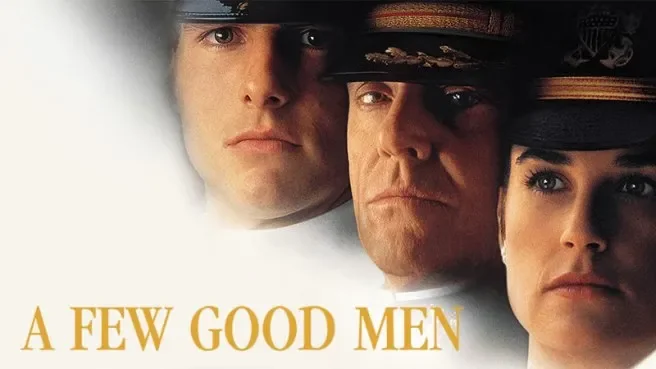🎬 What can A Few Good Men teach us about Leadership?
”You can’t handle the truth!”
Fear vs. Force: The leadership battle between Tom Cruise and Jack Nicholson
One of the most iconic leadership showdowns in cinema takes place in A Few Good Men. In the legendary courtroom scene, Lt. Daniel Kaffee (Tom Cruise) and Col. Nathan Jessup (Jack Nicholson) present two starkly different leadership philosophies — one driven by fear, the other by force of conviction.
You can’t handle the truth. Speaking from fears.
Jack Nicholson: Leading Through Fear
Col. Nathan Jessup believes in absolute control. His leadership is dictated by power, intimidation, and the fear of what might happen if people don’t obey without question. But underneath this rigid discipline lies a deeper insecurity: his leadership is tethered to his self-worth. Jessup equates obedience with respect and sees any challenge as a threat to his identity. His famous line — ”You can’t handle the truth!” — isn’t just a dramatic outburst; it’s a window into his worldview. He sees leadership as a structure of dominance, where fear keeps the weak in line and ensures survival.
Tom Cruise: The Transformation from Fear to Force
Lt. Daniel Kaffee begins his journey uncertain, questioning his own abilities and driven by the fear of not being good enough. For him, it’s not about control, but about performance — or the fear of failing to perform. To live up to his father. However, as the case progresses, something shifts. He transitions from being reactive and hesitant to stepping into his own force — the power of truth, conviction, and integrity. By the time he faces Jessup in court, Kaffee is no longer intimidated. He leads not from fear, but from the force of what is right.
One of the most telling moments happens right after the courtroom clash, when Lt. Cmdr. JoAnne Galloway (Demi Moore) asks Kaffee why he asked the final, risky question to Jessup. His answer is simple and powerful: ”I don’t know. I just knew I had to.”
That moment reveals the essence of authentic leadership — acting from a place of direction and inner truth, not from the need to prove yourself.
The LeaderNess Model in Action
At LeaderNess, we define leadership as acting from your forces rather than your fears. Kaffee and Jessup embody this contrast:
Col. Nathan Jessup — Fear-Based Leadership
🔹 Find — Jessup believes power and fear are the only forces that can maintain order, rooted in his need to feel respected and worthy.
🔹 Feed — He reinforces this belief by surrounding himself with subordinates who never challenge him.
🔹 Fuel — His downfall comes when he pushes his fear-based leadership too far, revealing the truth that ultimately dismantles his authority.
Lt. Daniel Kaffee — Force-Based Leadership
🔹 Find — Kaffee moves from performance anxiety and self-doubt to recognizing that truth and justice are his real strengths.
🔹 Feed — He nurtures his courage, supported by Galloway and his own growing self-awareness.
🔹 Fuel — His defining moment comes when he confidently pressures Jessup into revealing the truth, proving that leadership fueled by authenticity is stronger than leadership fueled by fear.
The Final Lesson: Leading with Courage
In the end, A Few Good Men is more than just a courtroom drama — it’s a leadership masterclass. Jessup’s fear-driven power crumbles under the weight of Kaffee’s force-driven conviction. True leadership is about empowering others, standing in your truth, and daring to challenge fear-based systems.
So, what kind of leader are you? Are you leading from fear, or are you leading from force?
🎥 Watch the legendary scene here:
You can’t handle the truth


